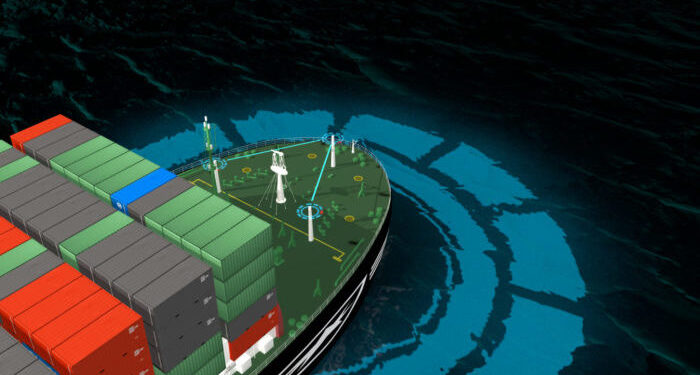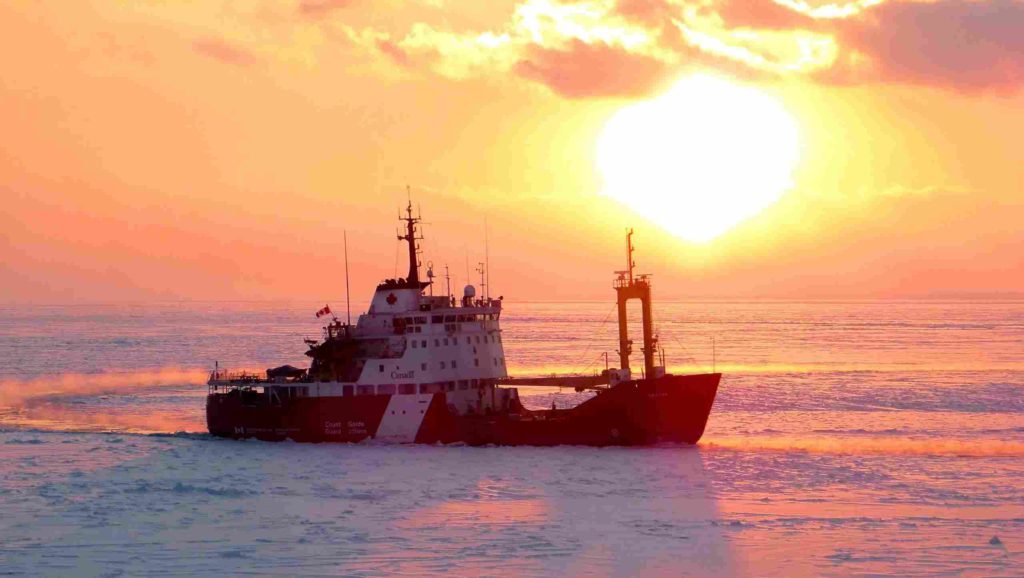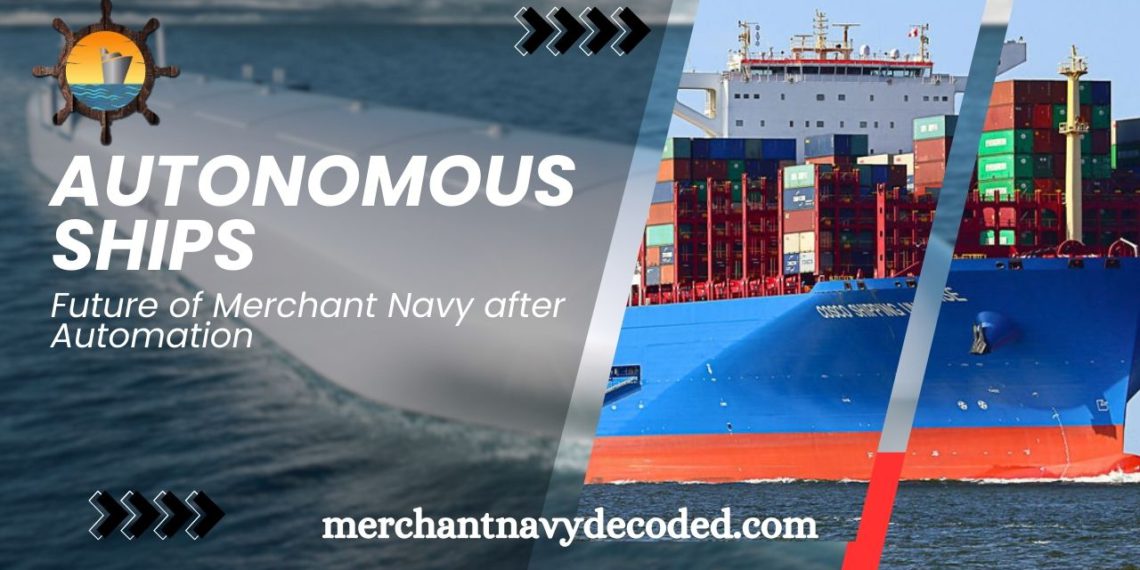Autonomous Ships: Is the Merchant Navy still a safe Choice in 2023
Overview
- Merchant Navy Jobs in the Digital Age: Discover whether a career at sea is still a safe and promising choice as automation transforms the industry.
Get ready to set sail on a journey of curiosity! We’re diving into the world of autonomous ships and how they’re changing merchant navy jobs. The future looks thrilling, so welcome aboard our adventure!
What are Autonomous Ships?
Autonomous cargo ships are like self-driving boats that can carry things like containers or a lot of loose stuff on the water. They don’t need people to steer them and can travel on their own.
Stages of Maritime Autonomous Surface Ships
According to the International Maritime Organization (IMO), a “Maritime Autonomous Surface Ship (MASS)” is a ship that can operate to various stages without human interaction. The degrees of automation are described as follows:
Stage 1
This is a ship with automated processes and decision support. Seafarers are present on board to run and control the ship’s systems and functions. Some tasks may be automated and occasionally unsupervised, but there are seafarers ready to take control if needed.
Stage 2
In this case, the ship is controlled and operated from a different location, not by the crew on board. However, seafarers are still on the ship, available to take control and manage the ship’s systems and operations.
Stage 3
Similar to Stage 2, the ship is controlled and operated from a remote location, but there are no seafarers on board. It operates entirely without a crew on the ship.
Stage 4:
This is a fully autonomous ship where the ship’s operating system can make decisions and take actions without human intervention.
For more details: Click Here
Impact of Autonomous Ships on Merchant Navy Jobs

Reduced crew requirements:
Autonomous ships don’t need as many people to work on them. They can run with fewer or even no people on board. This might mean there won’t be as many jobs for ship captains, officers, and crew members as before.
New skill requirements
Although certain old-fashioned jobs might decrease, there will be a higher demand for people who are skilled at creating, constructing, looking after, and operating autonomous ships from a distance. Jobs related to robots, automation, computer software, and data analysis could become more important.
Economic Factors
The use of autonomous cargo ships could be influenced by money-related things like saving costs. If these technologies become cheaper, it might impact regular maritime jobs even more.
So, in short, autonomous cargo ships may change merchant navy jobs, but not necessarily get rid of all of them. They might change the kinds of jobs and skills needed in the maritime industry. So, it’s crucial for maritime workers to learn and be good at new technologies in their field.
Scope of Seafarers in Autonomous Ships
- Some experienced seafarers might switch to jobs where they watch and control autonomous ships from onshore centers, making sure they travel safely and manage their cargo well.
- Autonomous ships will still need fixing and maintenance, and seafarers who know about ship upkeep, electrical systems, and mechanics can find jobs in keeping these ships working right.
- People interested in designing and building ships can help create the technology for autonomous ships. This means making the systems, sensors, and automation that help these ships run well and safely.
- As the maritime world changes with autonomous ships, there will be jobs for people who know about the rules and laws that govern it. Seafarers who understand maritime laws can work in jobs related to following the rules and making sure everything is done right.
- Working on making autonomous ship technology better is an ongoing task. Seafarers who like research and development can help make these systems improve and move forward.
- Experienced seafarers can give advice and help shipping companies and organizations that want to use autonomous technology in their ships. They can work as consultants and offer guidance.
Case Study: How “Maritime Innovator” Changed the Game with Autonomous Ships

Meet Maritime Innovator:
Maritime Innovator is a big deal in the shipping world. They move goods around the world in giant cargo ships, but they wanted to do things differently – and better.
The Big Challenge:
Shipping goods across oceans is no easy task. It’s expensive, it’s not always safe, and it’s not great for the environment. The Maritime Innovator wanted to find a way to make shipping cheaper, safer, and kinder to our planet.
The Game-Changing Idea:
They decided to use super-smart technology to make their ships drive themselves. Yes, you read that right – autonomous ships!
How It Worked:
Maritime Innovators made their ships super smart by adding special gadgets like radar, GPS, and computer brains (artificial intelligence). These gadgets helped the ships make important decisions, like avoiding storms, other ships, and even whales!
The Awesome Benefits:
- Safety First: With their new technology, Maritime Innovator’s ships became like super-safe superheroes. They hardly ever got into accidents because they could see dangers coming from miles away.
- Money Saver: Smart ships meant big savings. They used less fuel because they took the best routes and adjusted their speed to save energy. That made the company a lot more money.
- Saving the Earth: Less fuel also meant less pollution. Maritime Innovator’s ships started emitting fewer yucky gases into the air, helping to fight climate change.
The Mind-Blowing Results:
- Maritime Innovator’s costs dropped by 20%, saving them heaps of money.
- They used 15% less fuel and produced less pollution, making our planet happier.
- No accidents! Yep, zero collisions since they went autonomous.
The Exciting Future:
Now, other shipping companies are looking at Maritime Innovator and thinking, “We want to be like them!” The future of shipping is looking super smart, super safe, and super green.
So, next time you order something online and it arrives by ship, remember that it might have been delivered by one of Maritime Innovator’s excellent autonomous ships, making the world a better place, one cargo load at a time!
Conclusion

The world of autonomous ships is a thrilling journey into the future of maritime transportation. These self-driving vessels are not just changing the game; they are revolutionising it. Imagine ships that can navigate the seas on their own, making travel safer, more efficient, and eco-friendly.
Maritime Innovator, a true pioneer, has shown us that it’s possible to transform the shipping industry with cutting-edge technology. Their autonomous ships have not only made shipping more cost-effective but also incredibly safe. With fewer accidents, lower fuel consumption, and reduced pollution, they’re making our planet happier too!
Disclaimer :- The opinions expressed in this article belong solely to the author and may not necessarily reflect those of Merchant Navy Decoded. We cannot guarantee the accuracy of the information provided and disclaim any responsibility for it. Data and visuals used are sourced from publicly available information and may not be authenticated by any regulatory body. Reviews and comments appearing on our blogs represent the opinions of individuals and do not necessarily reflect the views of Merchant Navy Decoded. We are not responsible for any loss or damage resulting from reliance on these reviews or comments.
Reproduction, copying, sharing, or use of the article or images in any form is strictly prohibited without prior permission from both the author and Merchant Navy Decoded.



How long it will take to force complete autonomous Ships in seas?
Should I join Merchant navy now days or is it risky to lose our jobs in coming year?